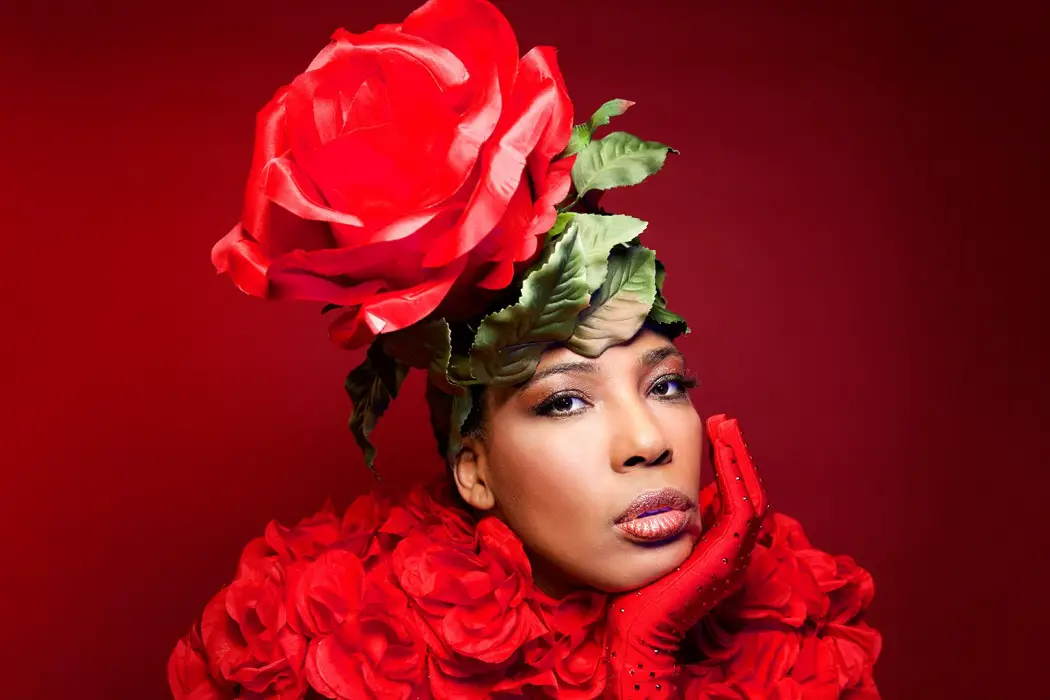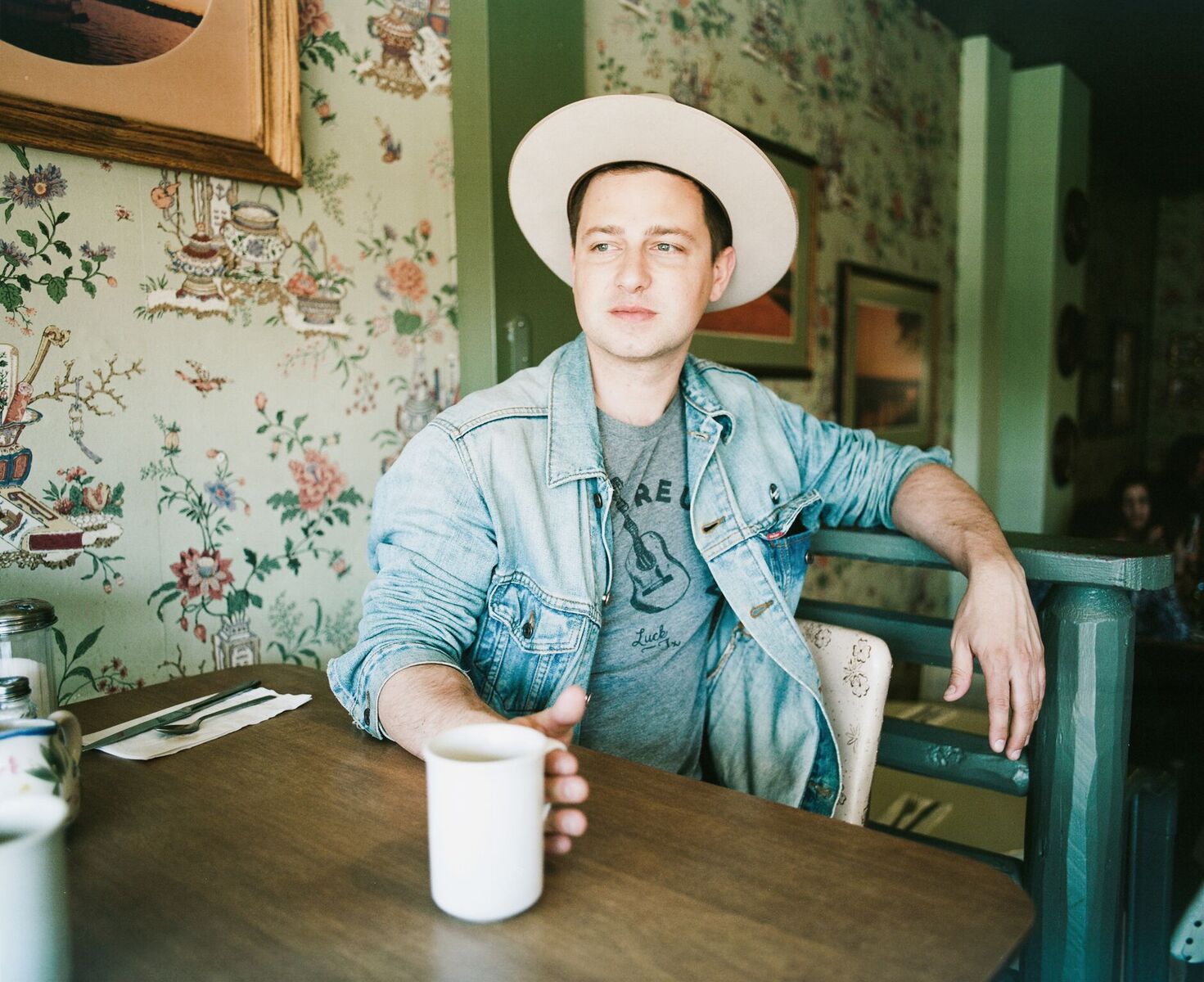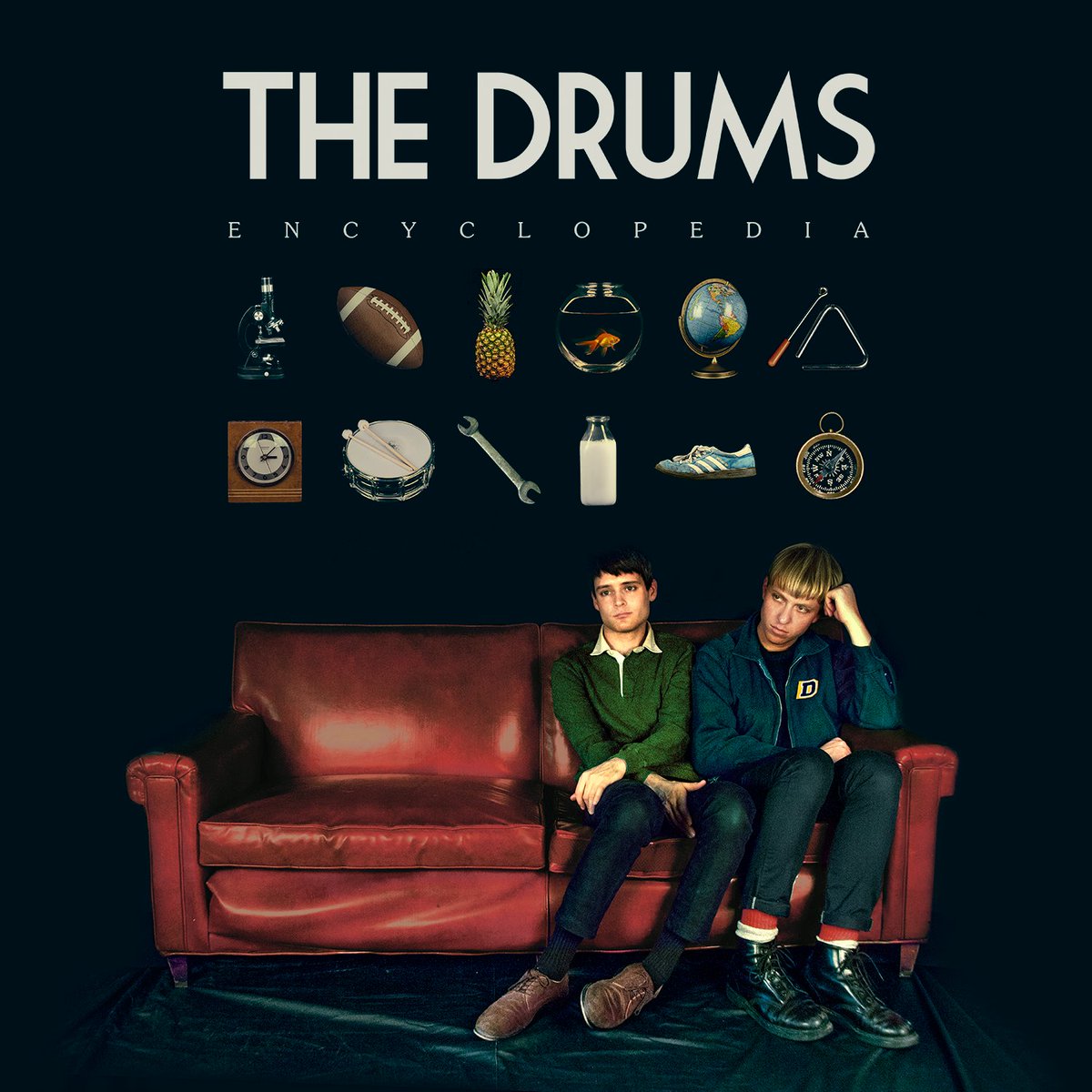Macy Gray talks to Atwood Magazine about maintaining the longevity of her career by being open-minded, the changing trends of R&B, and MTV!
— —
Soul/R&B songstress Macy Gray has been gracing people’s lives and headphones since her first album came out in 1999. Her unique vocal style and deft mixing of genres have made her an enduring favorite for fans, from her early hit “I Try,” to cover album Talking Book to last year’s Ruby. She is influenced by everything ranging from jazz to Metallica, and yet, nothing she does is derivative. She has worked with artists ranging from Erykah Badu to Ariana Grande, and covered songs ranging from Radiohead’s “Creep” to AWOL Nation’s “Sail” in ways only she could accomplish.
Gray’s latest offering, Ruby (released September 2018 via Mack Avenue Records II), is a celebration of her former sound and a step forward. With stunning production and Gray at her most charismatic, it’s a showcase of an artist in her prime. Gray’s goal for the album was “Nina Simone 2020.” No matter the year, Nina’s spirit is always welcome. Atwood Magazine recently spoke to Macy Gray about her latest album, her career longevity, Stevie Wonder, and learning to be open.
A CONVERSATION WITH MACY GRAY
Atwood Magazine: You’ve been making music since the ‘90s. You’re a contemporary of Lauryn Hill, Erykah Badu, and Terrence Trent D’Arby, and you’ve worked with other big current names in pop and R&B over the last few years. How have you found your style shifting over the last couple decades within the changing trends of R&B and soul?
Macy Gray: Mostly just being influenced by new music and hearing what my kids are listening to. Even if you don’t want it to, it affects the music you make and what you do, and you find yourself liking other kinds of music that you didn’t think you would like or that you’d never heard before – it ends up in your songs without you even trying. I think there’s a lot of – with all the streaming platforms and different ways to put your music out, it’s so easy to put your music out, you hear all this stuff. It’s almost overwhelming. But I do see how it’s affecting my music. I like different kinds of sounds that I didn’t like before, and it’s kind of a subconscious thing. It’s such a natural thing for me, I don’t really think about it much, but it just creeps in there whether you want it to or not.
That makes sense. A follow-up to that: Who are some people you find yourself drawn to lately that are newer tastes for you?
Gray: That’s another thing, I hear so much music I don’t really pay attention all the time to who’s doing it. But I’m a big Kendrick Lamar fan, I think he’s a real star. I’m a huge admirer of Drake and how he’s managed to sell a lot of records in the whole change and business of music. I just admire him as a musician and artist and all. I hear songs all the time that I really like and I really have no idea who it is. They don’t really showcase artists like they used to. A lot of times you’ll hear a song on the radio and they don’t even say the name anymore. I get confused as to who’s out, I have to ask my kids (laughs).
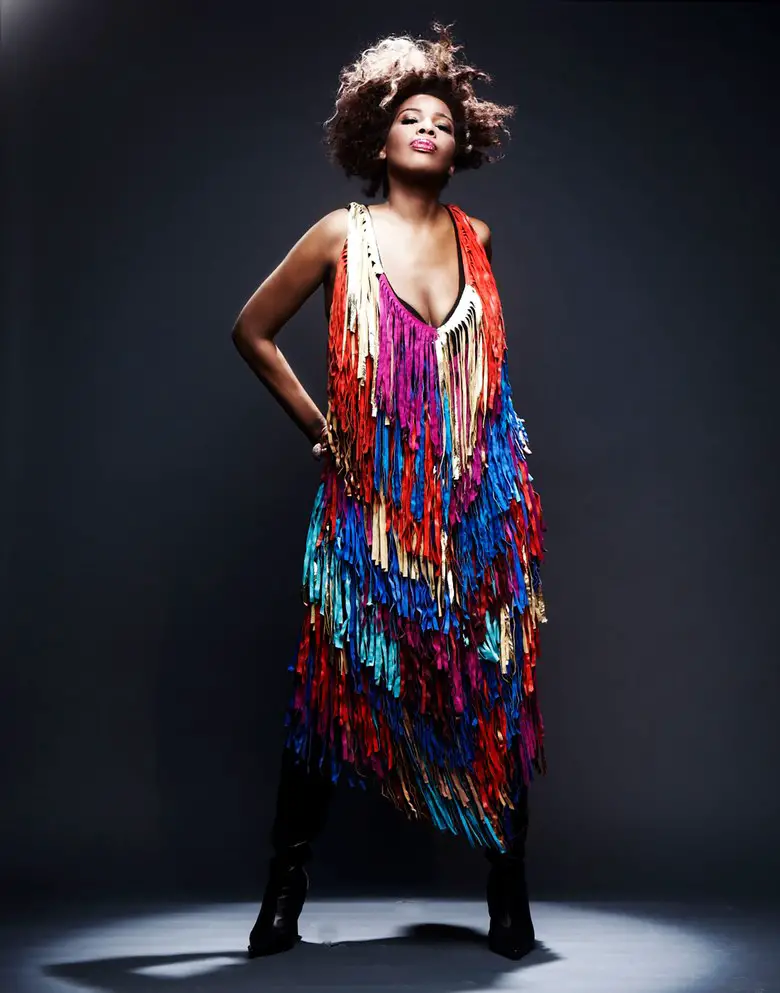
Tell me about the making of your latest album, Ruby.
Gray: It was a situation where I knew I wanted to make a record and I think the idea was to go for Nina Simone 2020. That was what we talked about. I don’t know if it’s that at all, but we just wanted to make a really rich record, with new sounds on it and a fresh take on music, and be interesting lyrically. So we were just kind of taking the high road on it. It took a little less than a year and a half to make. I was working with producers who were in a lot of demand and I had to wait for my time a lot of times, but we got it done, and I love it. I think it’s a magnificent record, and I’m anxious to really bring it out there and have people hear it.
What is your favorite song on this record and why?
Gray: I love “Tell Me.” It’s jazz, New Orleans style. I have a song called “When It Ends” on there…there’s a song called “Shenanigans” I really like. When you’re making a record, it’s always like b-sides, mostly. But those are probably my favorite right now. I’m thinking “Cold World” – there are a lot of songs on there. The record’s thick, it’s deep.
Your 2016 album Stripped finds you with a jazz quartet. I know Billie Holiday and other jazz musicians have been huge influences to you – can you talk about how jazz has shaped your musical identity? Who were the other musicians that you found yourself drawn to?
Gray: Well, my first band that I was in was a jazz band when I was coming up, and so we played a lot of jazz standards. Because I loved it, I listened to it all the time. You know when you’re in college you wanna be cool and listen to jazz…so we were all listening to jazz back then. Definitely grew on me. Mostly I learned to appreciate the voice – all the things you can do with it. The thing about jazz is that, you hear pop music and the lyrics aren’t that important. Nobody listens to the lyrics anymore. But in jazz, they make sure you hear every word. It seems to have a lot more respect for the art of music and where it’s coming from, what they can play. You listen to a jazz song and you’ll hear a ten minute solo, but you don’t mind because it’s about how it’s making you feel. A music snob will listen to the chord changes, and it’s just a different experience when you listen to jazz. It’s more cerebral than…you hear something else and you just wanna dance or shake that ass or whatever.
I grew up on jazz, so I played jazz all throughout school and there’s so much to it. Every little detail is so much more cerebral.
Gray: I didn’t know you were a musician, good for you.
Your music is so singular, as well as tinged with the influence of so many in the R&B/soul lineage. I hear Sharon Jones and Prince, sometimes War and the Neville Brothers. How do you distill your influences into your particular sound?
Gray: Like I said, it’s nothing that we do on purpose. You know, we make music with other people. So you go in the studio and you have people coming from five different perspectives and listened to different kinds of music when they were growing up, so you’re lucky. You get all that input and all those choices. It’s not a mechanical thing like, “Right here, I’m gonna do that thing that Prince does” – it just comes out.
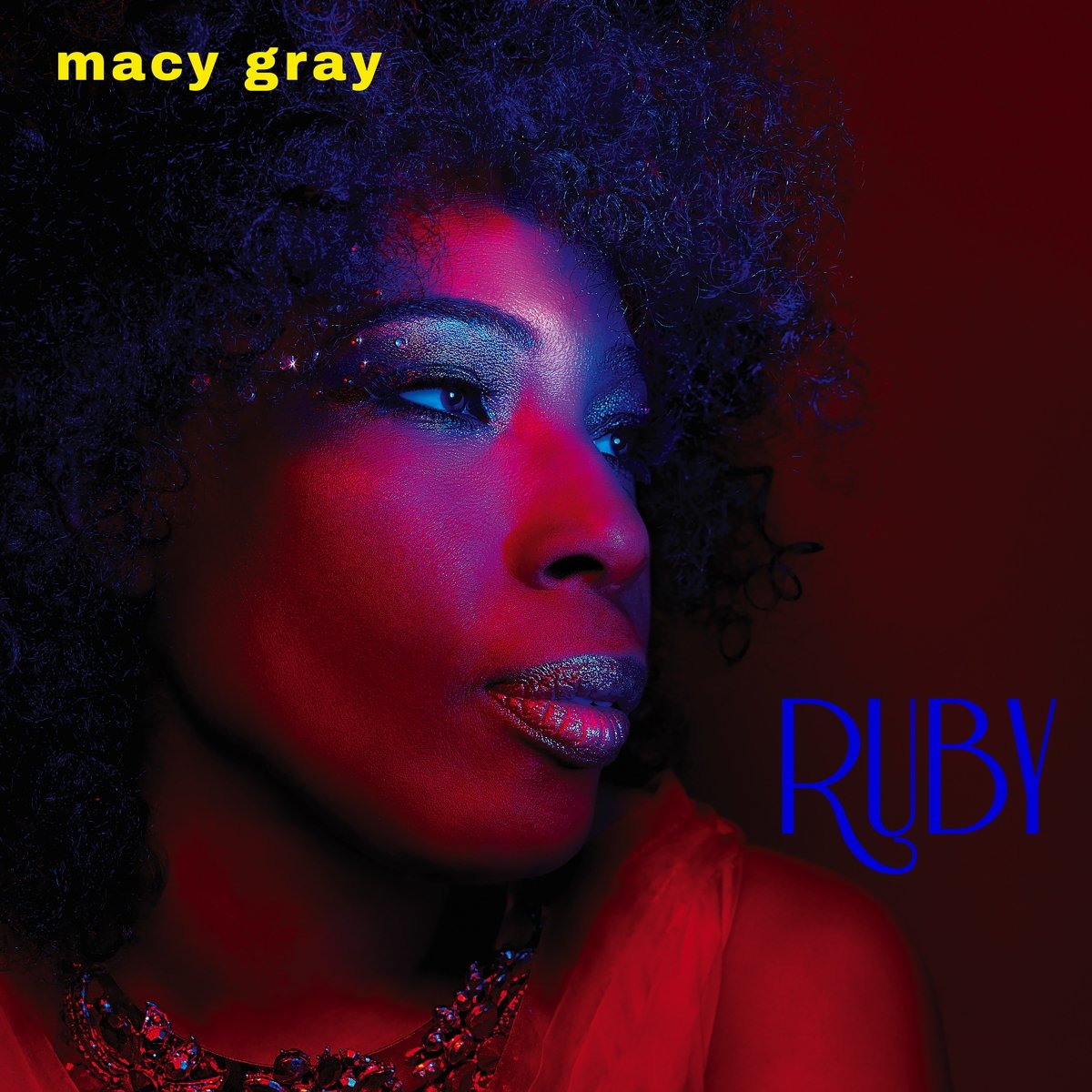
Can you point to a musician who’s influenced your work in subtle ways? Even if that style isn’t necessarily coming out in your music?
Gray: Probably Prince. I listened to Prince more than anybody when I was learning how to play the piano and going to school. There’s a lot though. I’m a Bob Marley fan and I like him for the same reasons. It was all about lyrics for him and how music feels. You could understand every word he said and it had meaning, and the music was interesting. There isn’t just one when you’re a musician. You listen to so much music and you listen to it for different reasons than others do. I remember in the 80s when MTV came out. I was an MTV addict…I would run home from school just to watch videos, so I heard all that metal and rock ‘n roll and stuff, and that had a big influence on me. I think it separated me from just being a straight R&B artist, ‘cause I love that stuff. I love Metallica and Def Leppard and all those guys. I just sang every single one of their songs. I think that was the start of me doing a different style than most R&B artists and just my approach and what I like. It’s not just one, but I try to listen to Prince more than anyone.
I desperately want to talk about your Talking Book cover album. Talking Book has some of my absolute favorite Stevie songs. You’re faithful to many of the original arrangements while also adding your own twist – except for “Superstition,” where you completely alter the familiar version. Tell me about the process of creating this album.
Gray: Well, I can’t even take credit for it. This guy named Hal Willner, he’s old-school, he did like Lou Reed records – he’s been the music director for Saturday Night Live since they’ve started. So we met, and we just started making records together. He did my Covered album and then he said, “You know, Mace, what you should do is cover a whole album. No one’s ever done that before.” So I had to go figure out what album I could do. At the time, I got really into Stevie Wonder. I was listening to Stevie Wonder all day, and Talking Book was the album I knew inside and out – I knew all the songs, I knew all the lyrics – so, we went with that one, not really expecting anything from it. It was just something everyone wanted to do. So we just did it. The whole band was in there live the whole time, so the whole thing was recorded live. So we’d do a take, and then me in the vocal booth. I don’t know! It was one of those things where we didn’t have a huge budget, I think I paid Hal $5,000 to do the whole thing, he did it, and we did it in about a week and a half. It was real, real quick. We just did it and put it out. It was just one of those things everyone had fun doing.
Which was your favorite song to record?
Gray: I like “You Are the Sunshine Of My Life,” I like the arrangement on there. It started out with the drummer, that beat he’s playing on the song – it was just a really unexpected take on that song. So I just went with it. I really had nothing to do with that one. I just think that one is really cool. But “Big Brother” is my favorite one on his album.
I love “Lookin’ For Another Pure Love” as well, it’s a great arrangement.
Gray: I forgot about that, I love that song! I could listen to that all day.
Much of your writing is collaborative. Can you tell me about how you approach that process?
Gray: I used to be really possessive about my lyrics – I was the only one who could write my lyrics. But as I’ve grown and learned more, you know, you just have to understand that some people have better ideas. Sometimes somebody’s not even a big writer, but they just say a word, and it’ll kick off the whole song for you. So I just think as a writer you really have to be open and gracious, because you never know what’s in the room. Like Kendrick Lamar, he can sit in the corner and write songs…he’s like 5 feet 2. Nobody knew what he was doing. It’s an art to be open and not closed off saying, “You know, I only want to do this album with Pharrell,” when some kid has a song on iTunes right now that’s even better, who might be better for you. Sometimes there are people in the room trying to write, and they’re not really writing. You have to be able to just sort that out without offending them, but accept that they might have an idea that inspires other things. They might be the guy that holds it up and he wants this chord change, but everybody knows it’s not working for you. As an artist you have to learn how to sort through all that, put it together and make it into a song. It’s really a craft that you learn as you grow. And then just the art of recognizing a great song. People create stuff for you and you just won’t hear it, and it’s learning how to give everything a shot, or how to listen. Maybe the song isn’t great, but there’s this verse in there that’s great! It’s just something I think you develop the more you do it. Some people develop it and some people have to hire other people because they don’t know how to. It’s just really finding what you’re good at and putting people around you that can do what you don’t do that great.
Who would you say are some of your favorite people to write with?
Gray: There are these producers called the Heatmakerz that I love. I’m working on my next album with them and I’m so excited about that. I’ve been thinking about that all day. Both my producers, Johann Carlsson – he’s an amazing, amazing musician, plays like six different instruments, and he has that thing where he knows how to craft a song. Tommy Brown did my last album. I’ve written songs with other more popular writers. Pharrell and Rick Rubin…but you know, I could talk about their talents, but I think you should open your mind to other people who make you feel comfortable and bring out the best in you.
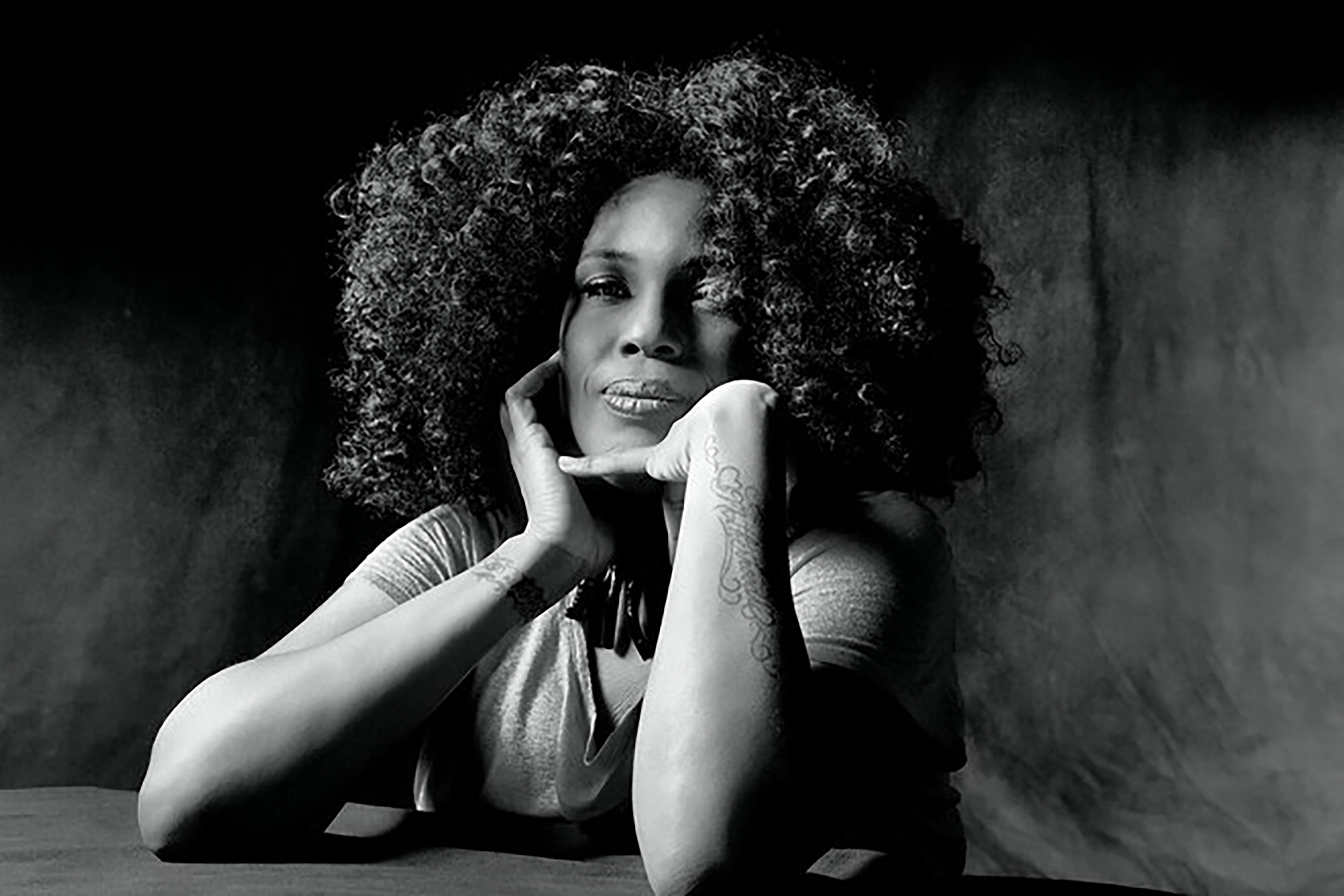
Tell me about your writing and production processes. What’s it like to come at your own music from both the front and back end?
Gray: Again, it’s nothing I try to do. You’ve got songs I had nothing to do with. There’s a song called “Just Like Jenny” on the album that I wrote a few lines for but other than that I had zero to do with that song. It’s an incredible song. There’s a song called “When It Ends,” where the producer was going off on this thing and I knew what it needed. I knew what it needed live instruments, and because of the lyrics I knew that it needed a certain vibe and I kind of was really hands on and sat through every moment of that song. I was there for that. But then the song “Tell Me,” it was me and a couple other writers who wrote the top of it but then Johan did the rest all by himself – I could never pull that off. You know, it’s just a get in where you can kind of thing. What you do will add to it and you know when to back off an leave it. I don’t really know how else to answer that question. It’s just all life! It’s experience, knowing when to jump in and when to back off.
Much of Ruby seems to be rooted in current events. Can you talk about how the last couple years politically have impacted your art?
Gray: So, of course there’s a lot to sing about, but I think everyone’s so confused that it’s hard to have a take on it. Sure, you can say, “I’ve got a song called ‘Fuck Trump,” but nobody’s gonna care. You’re not telling us a thing. It just stems from…there’s so much misinformation now. This is the age of just wrong information. I think as an artist you have a hard time really having a take on it. Of course everybody has feelings and ideas. We’re all in this…I don’t know like, weird spaceship and there’s all this stuff going on and I don’t think anybody can honestly say that they really understand it. I think that’s why you’ll find most artists leaving that out and wanting to party right now, because you just don’t know what’s going on. Back in the 60s, it was easy to say “I’m against war.” People were discovering drugs and it was easy to talk about that. Everything was clear, you know what I mean? But now everything is just a big crowd and all this stuff is just like, “What are you talking about?” That might change, you know. I remember the whole #MeToo movement and there’s this whole push for women to get to the next level. There’s definitely things to talk about in music, but it doesn’t really inspire me. When I’m in the studio, I don’t want to talk about the women’s movement. It’s not inspiring me right now. But I have a little comment here and there like everybody else, but it’s not like a political record.
That’s fair. You said you were about to start working on a new album, are there any details you can share about that?
Gray: Yeah, I want to do another produced record, and I found these producers that I love. I want to do something kind of dark and with a heavy bottom. Heavy like makes-you-wanna-dance, and just feel free and talk about interesting things. I mean that’s the album everybody wants to make. I have it in my head, I just don’t know how to describe it. But I think I found the right producers for it. It’s kinda like an old-school, hip-hop sound, but with pure melodies.
I’m really looking forward to hearing that! Thank you so much for taking the time to talk to me, good luck with your next album!
Gray: Thank you so much!
— —
:: stream/purchase Ruby here ::
— — — —
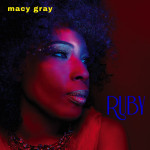
Connect to Macy Gray on
Facebook, Twitter, Instagram
Discover new music on Atwood Magazine
? © Norman Seeff

